When JJ School of Arts alumni Ganga Kadakia could not find a perfect green oasis to unwind, she decided to create one. A globetrotter by nature and an artist by profession, her art has taken her to several countries around the world.
After seeing nature in different forms and experiencing tapestries of culture, she felt a dire need to set up a place where lost, forgotten and indigenous art could thrive while offering people a sustainable weekend getaway.
She purchased land 100 km away from Mumbai in Karjat and established ‘Art Village Karjat’ (AVK) in 2016 dedicated to art and sustainability.
“I roped in Kiran Vaghela, an architect and got in the artisan team of Hunnarshala, Bhuj for construction. The foundation actively works towards building eco-friendly habitats. Together, they translated my vision into a reality and helped me promote eco-tourism,” Ganga tells The Better India.
A Green Oasis
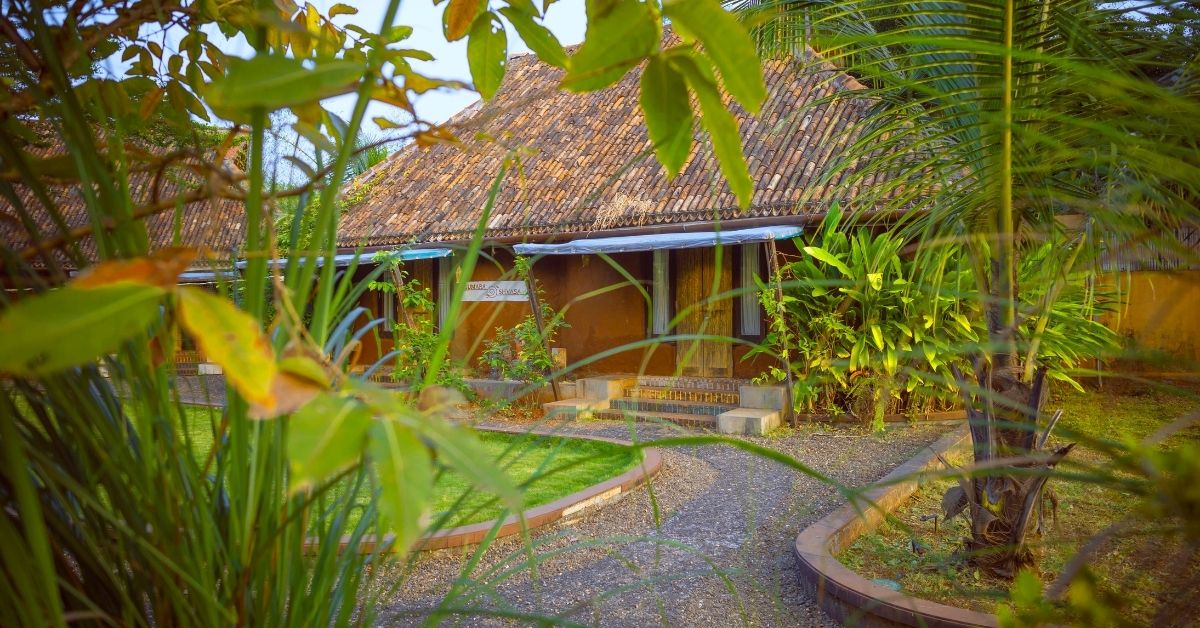
Comprising six rooms, a meditation centre, a kitchen, a community hall and more, the building was constructed using vernacular construction technologies like rammed earth made from clay, water and naturally available materials.
The rooms are dome-shaped to ensure durability and resistance to natural calamities. All the walls have lime (a mixture of sand, water and lime) or mud plaster that helps in stabilising internal humidity by absorbing and releasing moisture,” says Ganga.
She was also clear about reusing or recycling construction materials to reduce carbon footprints. Thus, materials like wood, clay tiles, Mangalorean tiles have been salvaged from discarded items. Likewise, they managed to salvage wood from a shipyard.
The highlight of the interior, says Ganga, is the egg-shaped meditation-cum-leisure pod.
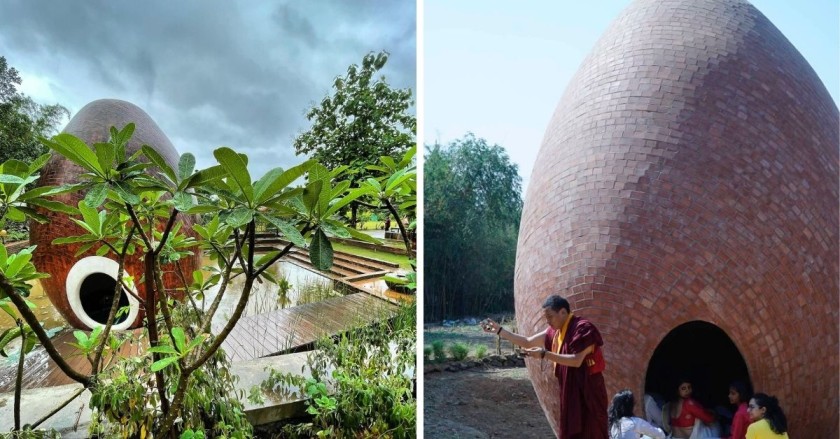
Thanks to these eco-friendly construction techniques and material palettes, the temperature inside rooms is always 6-7 degrees less than outside.
The property has a natural unit of greywater recycling that recycles 70 per cent of water which is used for non-potable uses. It uses the Canna indica plant to purify the water. The water is diverted to the roots where natural microbes feed on the impurities.
“If ever the place is dismantled, a forest will grow because we have barely used any concrete or cement and that is what makes our humble abode pro-environment,” she says.
Once a Dump Yard, Now a Forest
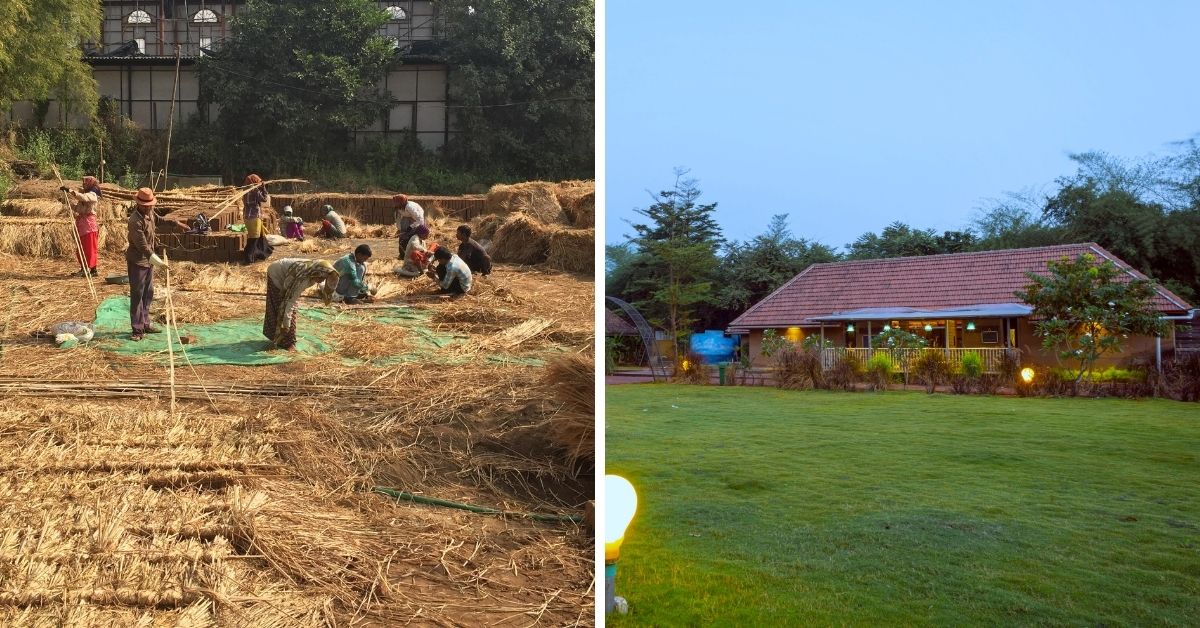
When Ganga and Ambika, Creative Content head of Art Village, were overseeing the construction activity, they were worried about the waste dumped at their property by tourists and locals. They had to turn the land into something beautiful to avoid garbage dumping in the future.
That’s when the organic farm project began to grow vegetables, fruit orchards, medicinal and native plants, herbs and different varieties of grains.
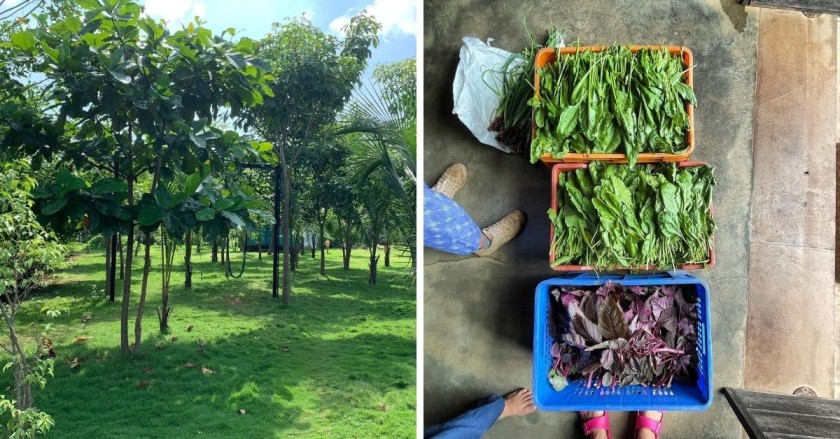
“Based on the rainfall patterns, we first planted trees like gular, badh, sheesham and kokam and once they bloomed without any trouble, we planted a hundred more. Two years later, we saw a natural ecosystem forming with an influx of birds like kingfishers and insects like butterflies. We have even dedicated space for a small butterfly garden that now houses 18 species,” says Ambika.
The mini forest-cum-agricultural farm is one of the main attractions of AVK. The guests are given a tour of the farm and even involved in the farming activities. Plus, the organic food served comes directly from the farm.
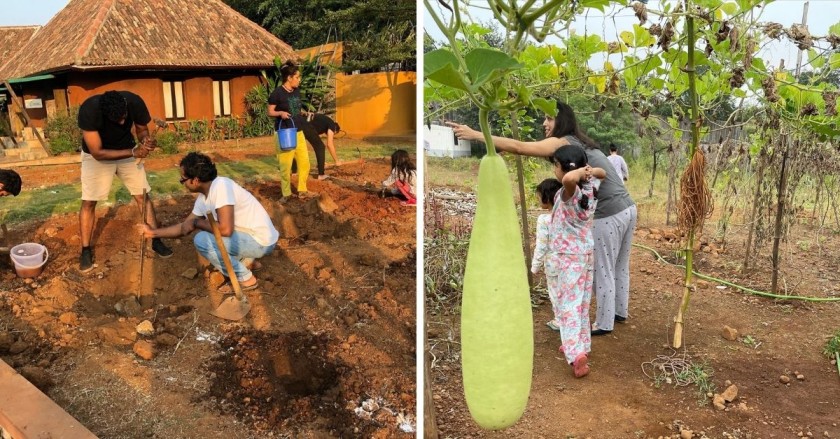
The guests are also given a demo of composting where they are shown how the kitchen, garden and other wet waste is broken down and converted into manure which is used for farming.
A Place for Art
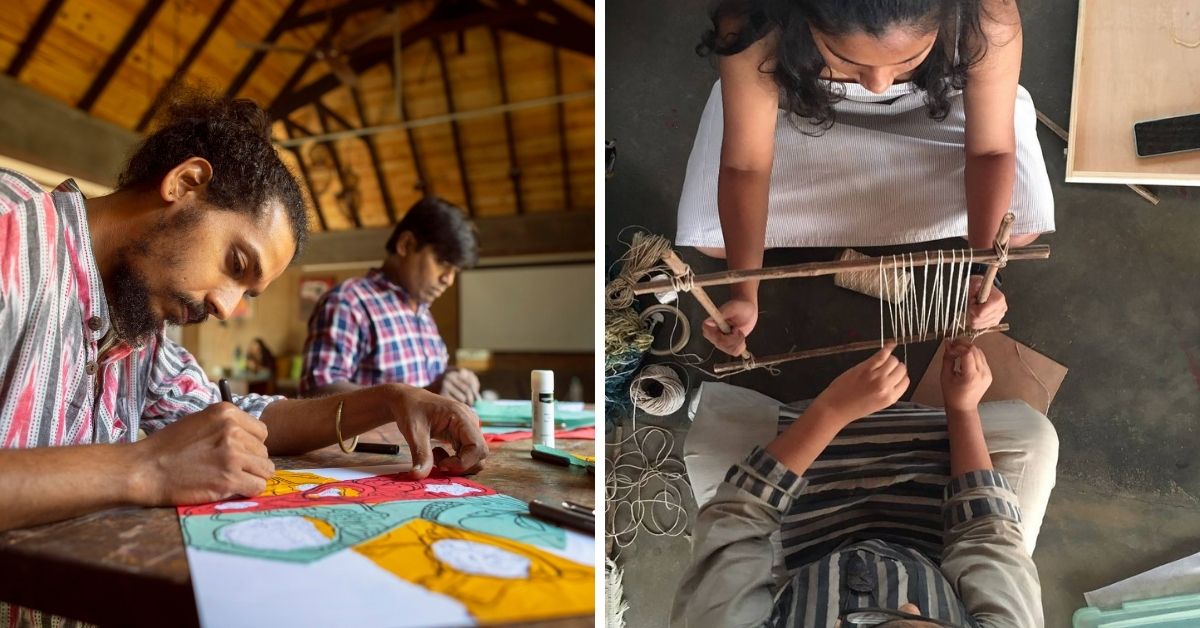
Ganga’s vision to build a community of artists has come true over the last five years. She has hosted several photographers, sculptors, filmmakers, painters, architects, yogis, musicians, actors, wildlife enthusiasts, dancers and more.
These artists have given workshops, taken classes, exchanged dialogues and held discussions to entertain the guests while promoting their skills and art pieces.
“If the guests are six or more in our premise, we conduct daily activities such as farming, pottery, paper making, painting and so on to give them a memorable experience,” says Ganga.
Charges for living at the AVK per night are to the tune of Rs 8,000.
Ganga soon hopes to launch a farming centre where farmers can come together and exchange ideas and share their expertise.
If you wish to visit the place, you can visit here for more details.
Edited by Yoshita Rao
No comments:
Post a Comment